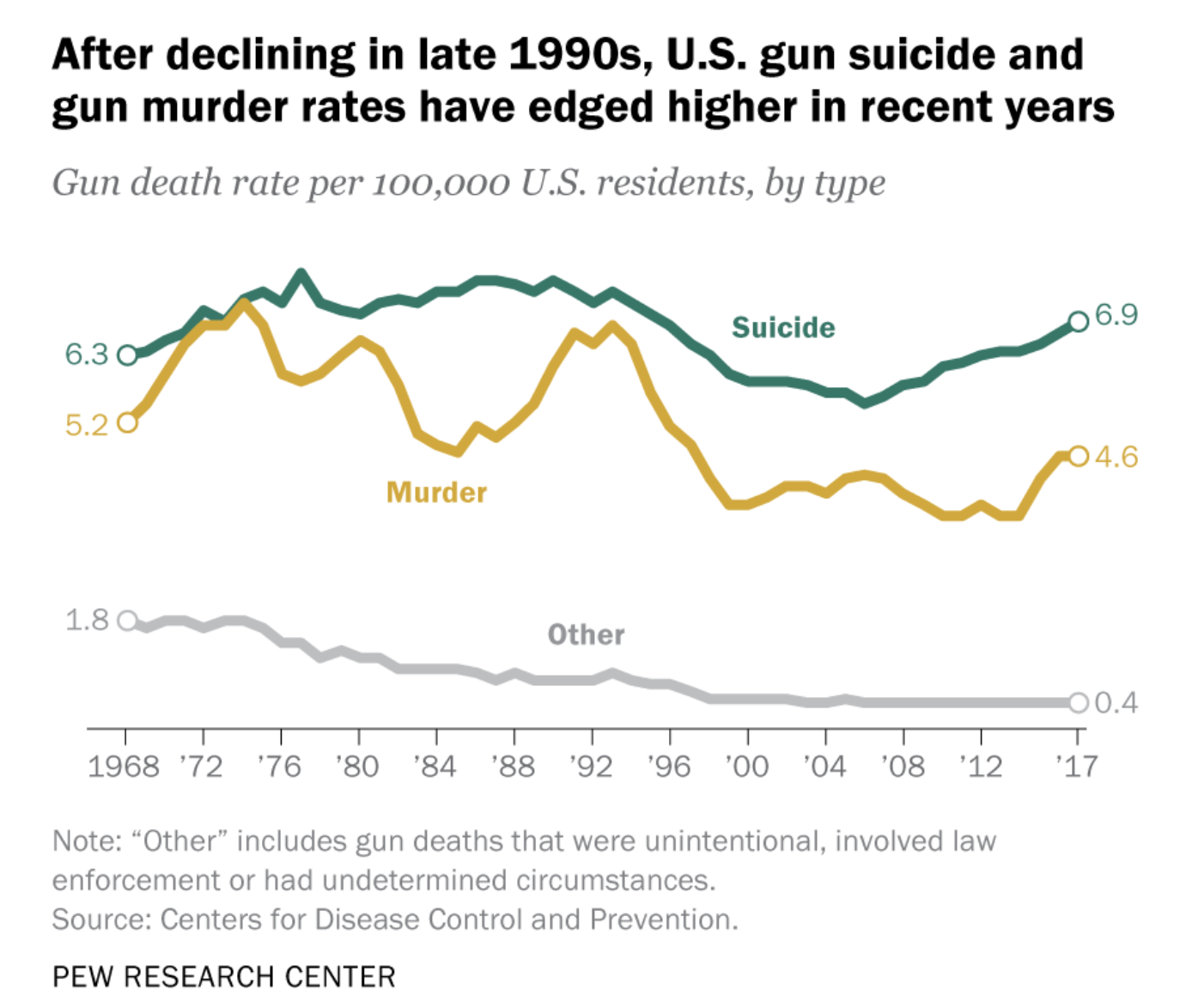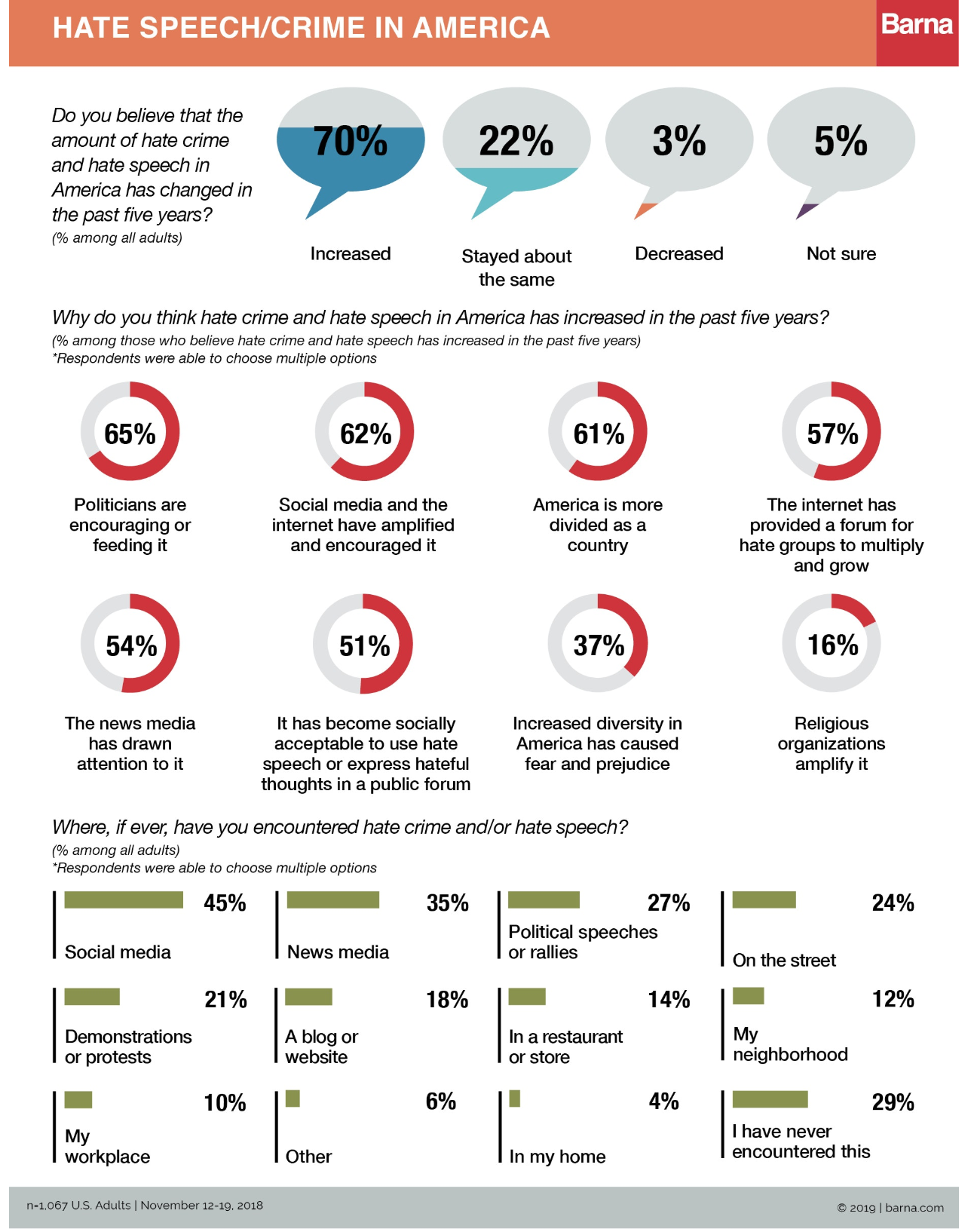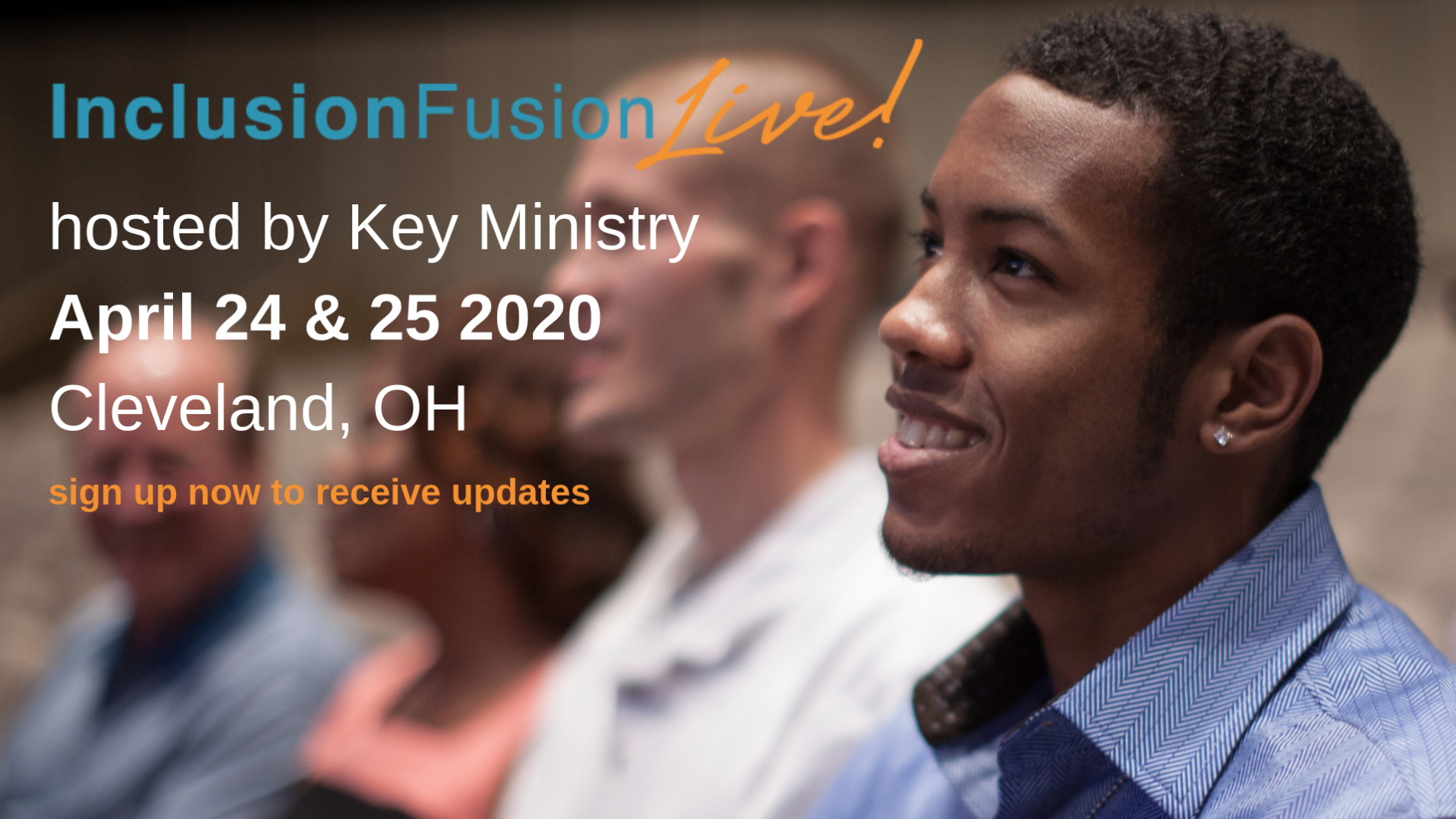This summer in the United States, we have seen an uptick in violence as the news has reported about gun deaths, mass shootings, and numerous atrocities. Within this wave of crisis, we have seen many people want to identify why we are having problems. Some say it's video games, while others say it is because of gun sales and ownership. One idea that has come out of the political sphere is that mass shootings are due to mental health needs. And as someone who pushes for more and more mental health awareness within my own community as well as the Church, I want to make sure the record is straight on this topic.
It's important that we understand how our words can not only build up people, but tear them down. Sometimes, we as Christians intentionally or unintentionally harm our brothers and sisters who struggle with mental illness by what we say about them. So I want this article to empower those brothers and sisters, as well as open the door for conversation with everyone else who can be a support.
The Old Data
It should be noted this is not the first time we have written on the topic of mental illness and violence or if mental illness leads to shootings. A couple of the findings that came out of those posts are slowly starting to circulate through online news and mainstream media in very inconsistent chunks. But as people who advocate for others with special needs, mental illness, substance misuse, and developmental delays, we need to understand the whole story. Here are some old facts, along with the new research for our culture and our churches.
The available research suggests that persons with mental illness are two to three times more likely to exhibit violent behavior than those without mental illness, but the vast majority (93-98%) never become violent.
Mental illness is strongly associated not with an increased risk of homicide, but with an increased risk of suicide. Each year approximately 32,000 people in the U.S. are killed with guns—about 19,000 of them by their own hand.
The bottom line: If we could eradicate all mental illness, we would reduce acts of violence by approximately 4%. 96% of the violence that currently occurs in the general population would continue to occur.
The New Collaborative Data
Since these recent crises, important research results have come out which further support the need for mental health awareness around violence, as well as not shifting the blame to those who are different and therefore must be the problem.
Pew Research: Pew Research did a study recently on general gun deaths in the United States that dispelled a lot of false claims out there right now. Gun-related death rates are actually not at an all-time high, though the media has increasingly covered gun-related deaths:
“While 2017 saw the highest total number of gun deaths in the U.S., this statistic does not take into account the nation’s growing population. On a per capita basis, there were 12 gun deaths per 100,000 people in 2017 – the highest rate in more than two decades, but still well below the 16.3 gun deaths per 100,000 people in 1974, the highest rate in the CDC’s online database.”
Note the graph below that they are referring to with the data in the quote above:
2. Barna Group: Barna Group’s first research study explored in 2016 school violence and did a poll on the perception of what causes school violence, solely on the surveyed individuals’ opinions. Notice the disconnect between 4% of people having mental illness symptoms versus the perception of upwards of 48%?
Barna then did a survey in July 2019 of U.S. adults’ experience with hate speech, emotional and verbal abuse. The graph below only captures the initial component of the survey, it breaks it down further and is super insightful, but ultimately the Internet, politics, and the media are the sources of this hate speech—not people with mental illness.
3. American Journal of Public Health: This article is the initial reason for writing this post and I wanted to finish it here. It's titled Mental Illness, Mass Shootings, and the Politics of American Firearms from 2015. Study after research study goes against definitive statements that violence is directly associated with mental illness.
I love how the article summarizes the discussion in the end:
“Our review also suggests that the stigma linked to guns and mental illness is complex, multifaceted, and itself politicized, in as much as the decisions about which crimes US culture diagnoses as “crazy” and which it deems “sane” are driven as much by the politics and racial anxieties of particular cultural moments as by the workings of individual disturbed brains. Beneath seemingly straightforward questions of whether particular assailants meet criteria for particular mental illnesses lay ever-changing categories of race, gender, violence, and, indeed, of diagnosis itself.”
If our response is to blame the mentally ill and lock them all up, as has been touted by many, that is a thermometer for the cultural view and understanding of how to deal with problems, as well as their approach to mental health and fear. We need to look at our blind spots, biases, and own responses to fear as we work with people who are troubled, with or without a mental health diagnosis.
I'll end with one last statement. I believe this completely and would love to have a conversation in the comments about all of the research, as well as my personal conclusion on the violence. For me it comes down to this: Mental illness does not kill, sin kills. Let's keep that straight.
Jeremy Smith is a clinical mental health counselor in Ohio and founder of www.churchandmentalhealth.com.







